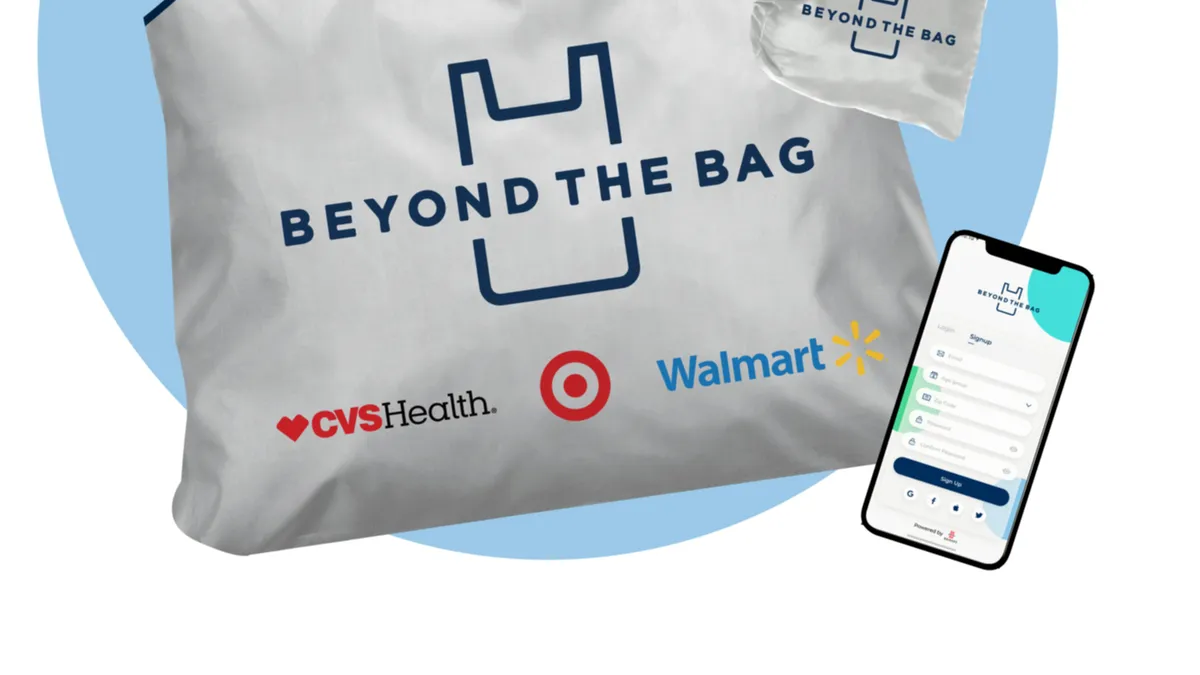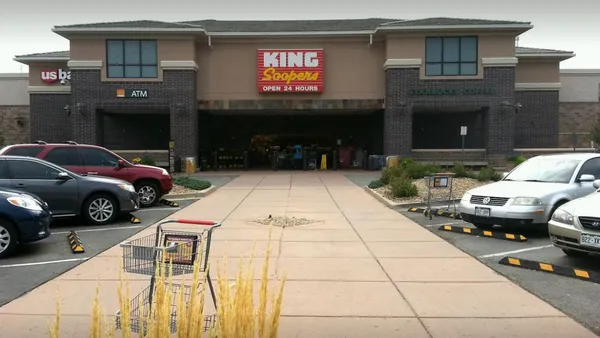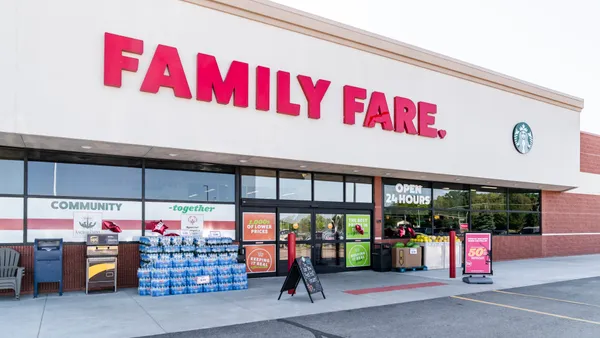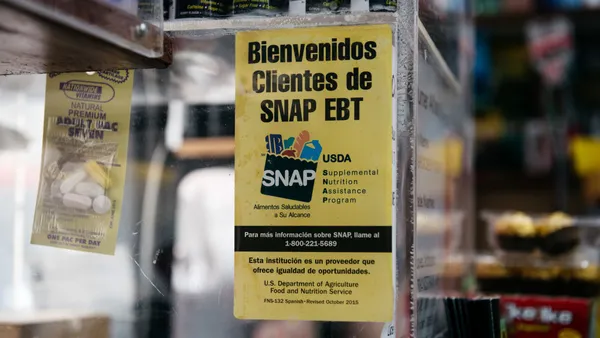Dive Brief:
- The Consortium to Reinvent the Retail Bag, an industry effort to develop viable alternatives to the single-use plastic bag, has moved into the store-testing phase, according to a news release Monday.
- Tests of multiple reusable bag models will kick off across a total of nine Target, Walmart and CVS Health locations in northern California this summer. The pilot will also include “enabling technologies” that can extend the life of the bags, incentivize their use, provide transparency into the bags' lifecycle, and more.
- The test phase will run during a six-week period into early fall, and will also include pilots of reusable bags for home delivery service and bag models meant to directly replace single-use plastics.
Dive Insight:
After its founding last year, the Consortium, which is spearheaded by the Center for the Circular Economy at Closed Loop Partners, launched an innovation campaign to identify promising bag makers and technologies that can help shoppers transition away from single-use plastic bags.
The winners, including companies like ChicoBag and Fill It Forward, which makes an app that shoppers use to track their use of reusable containers, then entered a prototype phase that now incorporates the retail pilots. The tests will help the Consortium evaluate factors like commercial feasibility and consumer demand as they work toward developing more sustainable, commercially viable bag solutions within two years’ time.
In addition to testing reusable bags and tech solutions at Walmart, Target and CVS stores, the Consortium will test reusable bag solutions through Walmart’s delivery service in select markets. This includes reusable bags and boxes made for e-commerce, as well as technology that collects data on customer use, reuse and recycling habits. The Consortium will also test bags made from alternative materials such as seaweed that are compostable or 100% recyclable.
Retailers have long sold reusable bags in their stores, but the Beyond the Bag Initiative, as it’s called, aims to bring rigorous testing and innovation to an area that’s become more pressing for retailers as well as shoppers. This includes a focus not just on bags but on supporting technology, like Goatote, a kiosk that dispenses reusable bags, and a program by 99Bridges that awards points for taking sustainable actions.
“Knowing that systems change does not happen overnight, these pilots are an essential step to test, incorporate customer and retailer feedback, and improve new solutions, exploring pathways to scale,” said Kate Daly, managing director of the Center for the Circular Economy at Closed Loop Partners, in a statement.
Founding members Target, Walmart and CVS have so far spent $15 million collectively to fund the Consortium. Members also include Kroger, Dollar General, Ahold Delhaize and Albertsons.
Consumers use an estimated 100 billion single-use plastic bags each year, the majority of which end up in landfills and waterways, according to environmental groups. Plastic bag use ticked up during the pandemic, when many retailers banned reusable bags as a safety measure, but companies like Kroger are still working toward phasing out plastic bags to position themselves as environmental stewards in line with consumer attitudes.













